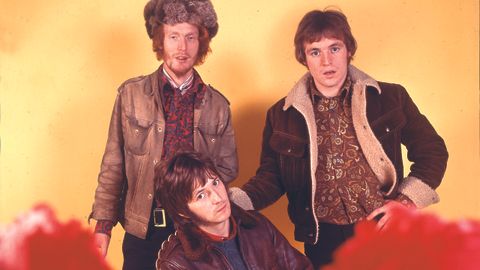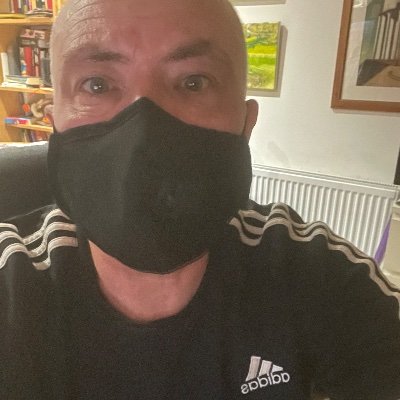It’s often hard to credit that Cream as an entity never made it to the 70s, as so much about them – their bluesy heaviness, their virtuoso prog digressions – anticipates what became of rock early in that decade. Indeed, they were rock before the abbreviated term had been coined as such. And yet they’re a band who instantly and immediately appealed in their own era, a product of the British blues boom who transmogrified from mere transatlantic copyists into a group who were as right for the times as Carnaby Street.
There were strong similarities with The Jimi Hendrix Experience – Hendrix’s arrival in the UK certainly shocked and energised Clapton. However, whereas Hendrix was dominant in his own group, with Cream the dynamic was more even. Jack Bruce and Ginger Baker never saw eye to eye, with Baker never willing to accept that vocalist and songwriter Bruce was the bandleader. It’s as if their quarrelling powered the rhythm section.
Fresh Cream, their 1966 debut, has the familiar acoustic feel of studio products of the time, and pays due homage to the bluesmen with whom Cream’s generation was infatuated on the likes of Spoonful by Willie Dixon. Clapton’s guitar mewls eloquently but still has some growing to do. Still, I Feel Free still feels like the first breath of late-60s spring, while N.S.U’s open-ended, three-way playing even fleetingly anticipates the patterns of 80s and 90s rock.
1967’s Disraeli Gears sees Cream in full psychedelic bloom, Clapton’s wah-wah mojo throbbing and glowing on Outside My Window and Tales Of Brave Ulysses, with Bruce’s vocals channelling the spirit of the times. Baker chimes in compositionally with Blue Condition, but it’s Sunshine Of Your Love whose riffing bends rock into the shape it was about to become.
1968’s Wheels Of Fire was a huge record in huge times, the first ever double album to go platinum. The studio album consolidates Cream’s reputation for pop/rock immaculacy, with White Room’s descending hook in particular making an indelible mark. What really would have impressed at the time were the live sides, in which the trio embarked on extended improvisations, including Crossroads and Toad, recorded at the Fillmore in San Francisco. They showed an ambition for rock to match the freewheeling extensions of jazz.
Finally, the personal, combustible nature of the group told, and they announced their departure with 1969’s Goodbye, dominated by their version of Skip James’s I’m So Glad, and the brilliant Badge, co-written with George Harrison.
With Hendrix’s sudden death, Clapton could have gone on to dominate the 70s as its premier fretboard God. However, Hendrix was Clapton’s friend and his passing devastated him to the core. His heart never seemed quite in the new rock game, of which Zeppelin were kings. Despite the colossal success of Layla, Derek And The Dominos felt like a cul-de-sac from the outset. Derek And The Dominos In Concert, recorded in 1970 at the Fillmore East in New York and first released in 1973, sees Clapton digressing at length with formidable wah-wah guitar liquidity on Let It Rain and Bottle Of Red Wine, but there’s an absence of spark, of purpose.
Eric Clapton’s Rainbow Concert took place in 1973, arranged by Pete Townshend to help Clapton in his recovery from heroin addiction. It features some beautiful playing, deep blues informed by experience, and yet sounds like a man who needs a bit of propping up from his friends.
By the time of 1975’s E.C. Was Here, Clapton was more famous for reggae-tinged hits like I Shot The Sheriff, his extensive availing of black music styles, and for making his ugly onstage “Keep Britain white!” outburst in Birmingham in 1976 (which, needless to say, does not feature on these live recordings).
Finally, 1980’s Just One Night, recorded in Japan, sees Clapton beginning his long years of playing out his own heritage. It’s a subdued set, filled out with boogie-woogie stylings and Albert Lee riding shotgun. Clapton could still play, but had long-since tired of playing the rock game.


